A growing network of volunteers across the country are helping to control invasive non-native species. Their incredible efforts help native species and habitats to recover. There are personal benefits to volunteering too, including improved health and wellbeing through being active and connecting with nature, and meeting new like-minded people.
Volunteers from Local Action Groups have shared some of their experiences.
Bridget Green, Friends of the Bowdon Bollin
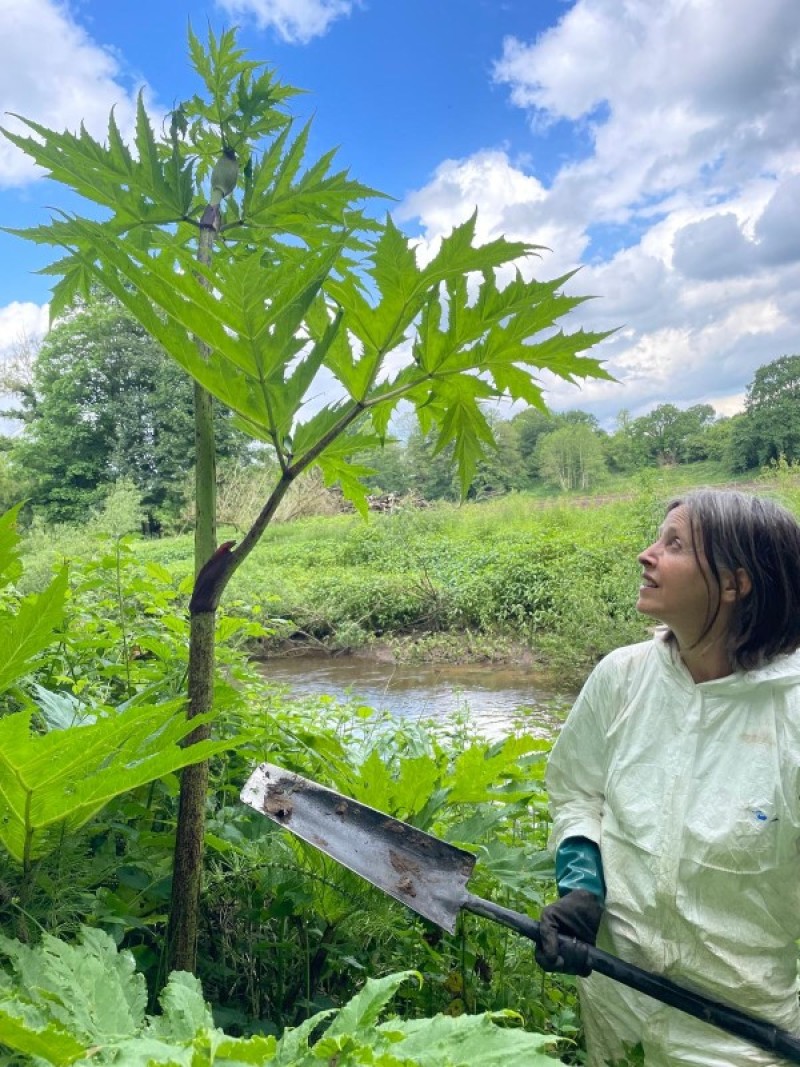
Over the spring and summer months we take out giant hogweed and Himalayan balsam from our stretch of the river Bollin. In the autumn we focus on Japanese knotweed. Over the years we have reclaimed meadows and woodland from giant hogweed and Himalayan balsam infestations, though sadly more seed arrives by the river. So, as a group, it is important that we keep on top of the areas we’ve cleared.
I love to see native plants taking over such as willow herb, meadowsweet and marsh orchids. We also get plenty of nettles and brambles and I’ve learnt to ‘bramble -walk’ to get to a stray balsam flower! My favourite job is digging out young, and occasionally big, giant hogweed. When we started, we had to use herbicide as the patches of giant hogweed were so dense. But it is under control now, and we are able to dig out any new plants, which is very satisfying. We recently expanded to treat an infested area upstream of us and that really brought home the difference we have made in the Bowdon stretch of the Bollin.
Our volunteer team have been supported by the Local Action Group Beacon, the Mersey Rivers Trust and the Bollin Valley Partnership. It’s important to work with local groups and landowners in the area to maximise our impact.
Liz and Bob Jack, Paddle UK
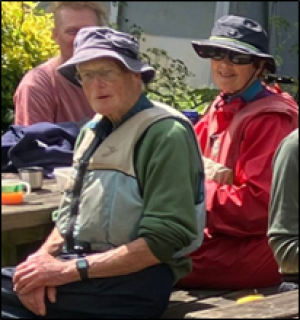
We first encountered floating pennywort on the Slough Arm of the Grand Union Canal in June 2020 when our canoe was stopped by a solid bank of what we then knew just as “floating weed”. We could make no headway.
Since 2022 we have volunteered to remove floating pennywort on over 13 occasions on the River Wey Navigation and Lee Navigation at events organised by Paddle UK and the Angling Trust.
It has been interesting to see how the removal techniques have evolved with our experience. The most satisfying part is removing the large floating mats when 5 to 15 tons can be removed in a few hours by 10 to 20 people working together.
This can be done by cutting into manageable portions and pushing with kayaks, canoes or paddle boards to the banks where a shore party lifts it ashore. This technique can be seen in the video bellow.
Removing the large mats is only the first step and the most important stage is preventing them growing again. This needs regular patrols on the water to prevent small floating bits getting established.
Pennywort removal is enjoyable, very rewarding (good for the environment, boaters and fishermen) and a good way to keep fit. Thanks for Pippa Rowlandson (PaddleUK) and Andrew Chadwick (Angling Trust) for organising the events.
Watch a video from Paddle UK on the 'cut and float' technique for managing floating pennywort.
Patsy Baverstock, New Forest Non-native Plants Project
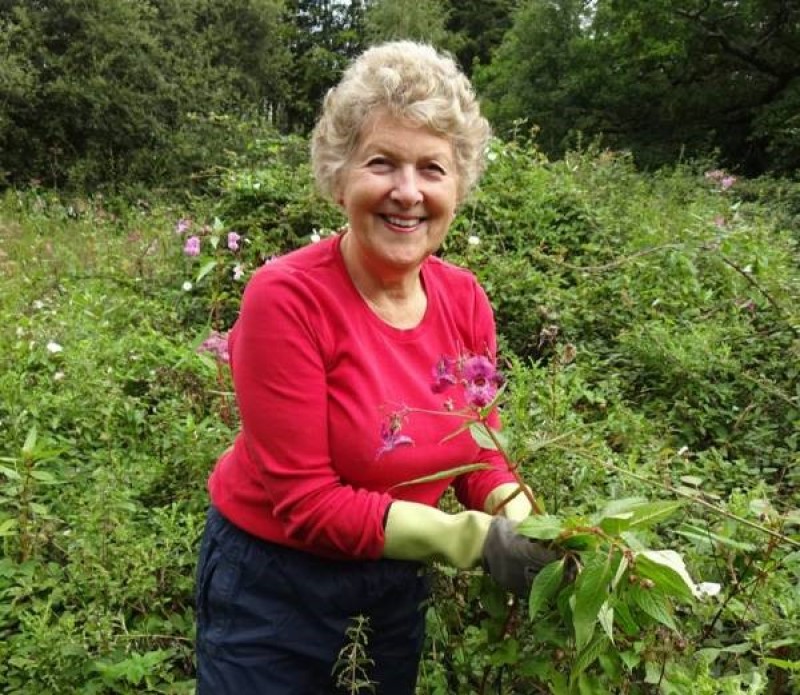
I have been a volunteer with the Hampshire and Isle of Wight Wildlife Trust for the last 5 years, helping with the eradication of Himalayan Balsam along the Cadnam, Avon and Lymington Rivers.
I find the work extremely satisfying, knowing we are removing a non-native plant which has taken over from our native species. I enjoy being outdoors, working with many like-minded people, feeling that we’re doing something beneficial to the area. Seeing areas that have been cleared during a session, is one of the rewards. It is good for your health, mentally and physically. I look forward each year to helping out whenever I can.
Find out more about the New Forest Non-native Plants Project.
Geoff Densham, Trafford Wildlife
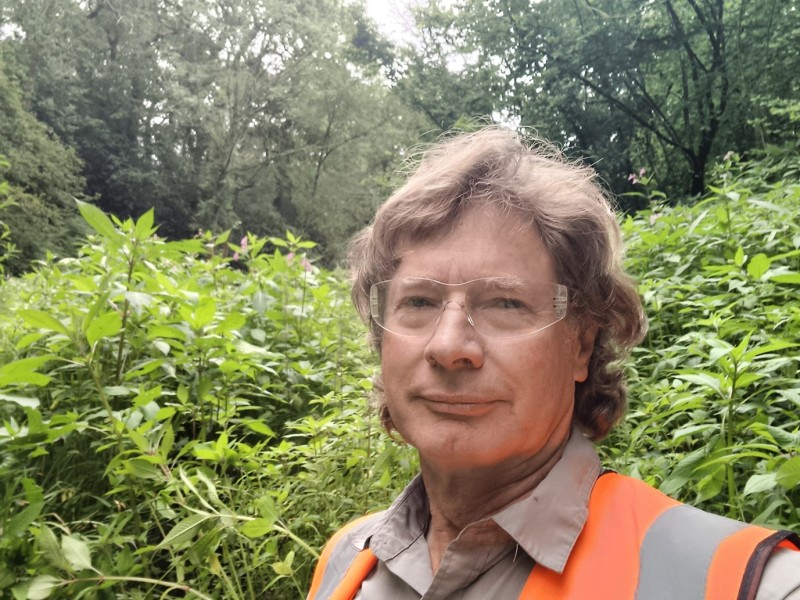
I’ve been a volunteer (and Secretary) with Trafford Wildlife since its creation in late 2019. We run tasks Mondays, Wednesdays, Fridays and second Sundays. So, plenty of opportunity to have a bash at INNS. Trafford Wildlife is a community group volunteering only in Trafford to keep our carbon footprint low (and many volunteers cycle to tasks).
